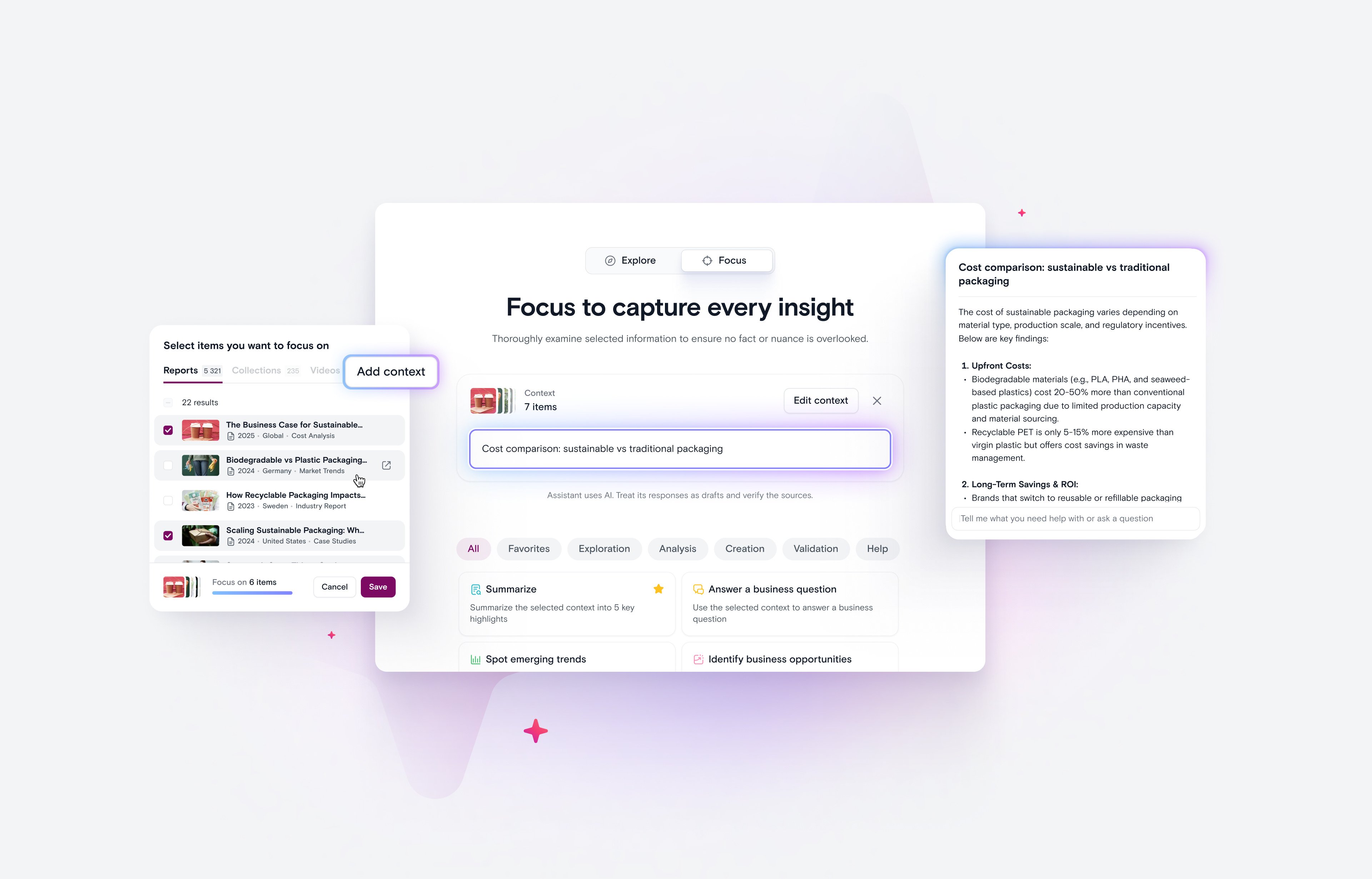Going Beyond Research Order-Taking and Delivering True Insight Gold

It’s easy to become caught in a cycle of neverending “transactional” UX research requests without having the opportunity to actually shape bigger decisions. Think endless lists of quick user tests and short-order design validations.
Our recent webinar, Beyond the Research Transaction: Deliver True Insight Gold, brought together two industry experts, knowledge management and UX research consultant Emily DiLeo and organizational psychologist Robin Beers who previously led UX Research at Wells Fargo. The pair discussed how to overcome the “factory” approach to research and instead build deeper strategic partnerships with stakeholders.
We’re here to recap the key insights of the webinar, including how to reframe your role as a UX researcher, nurture a knowledge-sharing culture, and deliver impactful insights that resonate across the entire organization. Keep reading.
The issues of UX research as “short-order cooking”
It’s fair to say that many UX researchers often feel like “short-order cooks”. This involves repeatedly taking requests – “We need a quick usability test!” – without being looped in or engaged in the broader business strategy. In these situations, researchers deliver results but rarely see how (or even if) those results shape significant business decisions.
This transactional, detached dynamic leads to several issues:
- Limited impact: Valuable knowledge gets locked into one-off deliverables.
- Frustration: Researchers rarely see how their findings influence the product or organization’s evolution.
- Underutilization: The business fails to use the strategic insights researchers can offer.
The separation of UX research from other areas (e.g., market insights and competitive intelligence) often reinforces this isolation. Over time, researchers work reactively and lose the opportunity to contribute to broader decision-making.
Reframing the researcher’s role from transactional to strategic
For more impactful research, we must reframe what researchers do. Instead of seeing yourself (and being seen) merely as service providers completing tickets, you must position yourself as a consultant and learning facilitator.
Here are some ways to reframe the researcher’s role:
-
Adopt a consultant mindset - Firstly, at the start of a project, ask stakeholders what outcomes they expect. Don’t be shy to ask probing questions. This reveals any assumptions and biases, which then become part of the discovery process. Be proactive in gathering input from various product groups and not just the single stakeholder who filed the request. Encourage cross-functional funding and buy-in, transforming research from a one-team project into a strategic asset serving the entire organization.
-
Share the bigger picture - When presenting UX research or findings, showing how it fits into the larger context is essential. Instead of focusing on one small detail or insight, help your stakeholders understand how this information connects to the bigger business goals, strategies, or challenges. This gives them a clearer sense of how your UX findings can be used to make informed decisions and take action.
Build a culture of knowledge-sharing
Research that sits in a repository rarely influences major decisions on its own. People must be actively guided to it and be able to have access to it. But do you do that?
Move beyond basic knowledge management
Knowledge management used to focus on storing and organizing assets, like documents, transcripts, and recordings. However, a truly impactful approach emphasizes learning as a social process.
Instead of viewing a repository as just an archive to store information, treat it as a springboard for discussion:
- Curate and synthesize: Make sure to use your “synthesis superpower.” After all, gathering data is only half the job. Transforming that data into coherent, compelling insights that guide decisions is what makes excellent research.
- Create regular sharing opportunities: Host an internal webinar or forum to share your latest user insights. Invite product, marketing, and other teams to view your recent research.
- Provide timely synthesis reports: Before major planning cycles (e.g., annual or quarterly), deliver curated summaries of your most critical findings.
- Share newsletters or intranet spotlights: A well-designed, easy-to-scan, concise bulletin highlighting new insights can quickly gain team traction. Include brief anecdotes or user quotes to grab even more attention.
Map your “currents” of knowledge
In every organization, knowledge naturally “flows” among certain people and teams more than others. Some researchers already serve as the “go-to” connectors. Identify where these currents exist and where they need strengthening, here are some tips:
- Create a stakeholder list: Create a living, ever-evolving document of stakeholders, their roles, and past research touchpoints.
- Assess relationships: Which stakeholders champion your research? Who are blockers or skeptics? Tailor your approach. Sometimes, you can convert research skeptics by discussing their business goals directly.
Develop relationships for significant UX impact
Following on from the last section, relationship building is one of the most powerful drivers for changing how research is perceived and used. Even the most powerful insights can go unnoticed if researchers haven’t built trust, empathy, and open dialogue with their stakeholders.
Here’s how to build relationships within your organization:
Practice empathy for stakeholders
User researchers are often excellent at empathizing with end customers. But how often do we apply empathy to our internal business partners?
By understanding their motivations, pressures, and success metrics, researchers can:
- Speak their Language: Discuss how UX research helps them hit key targets.
- Offer win-win solutions: Propose cross-team research that saves multiple stakeholders time and money.
- Anticipate roadblocks: Identify where product teams will likely push back and tackle concerns before they stall the project.
Learn change management skills
Pushing for broader, more strategic research often requires change management techniques. However, the goal isn’t to force every request into a massive exploration or study but to recognize when a question should lead to a more expansive approach.
Brush up your skills to:
- Negotiate scope: Know when to deliver a “quick fix” and when to propose a deeper inquiry.
- Highlight the payoff: Show how further investigation leads to insights that benefit more than one product.
- Collaborate: Align with other teams or leaders with a vision of bigger-picture research.
The aim is to develop a strong rapport that encourages stakeholders to seek out research proactively rather than only when a crisis arises. Additionally, schedule ongoing check-ins, not just project kickoffs or final deliverables.
Watch the full discussion
Switching from transactional to strategic research isn’t a quick or easy fix. The process requires intentional culture-building, thoughtful change management, and consistently demonstrating UX research’s value.
Yet the payoff is enormous:
- UX researchers gain more fulfilling roles and can see the real impact of their work.
- Organizations tap into true “insight gold”, discovering new opportunities for innovating their products and services.
- Stakeholders view research as a meaningful, ongoing dialogue with customers and the market.
To dive deeper into these topics – including discovering real-life examples of how knowledge management and relationship-building can make an impact – watch the full webinar recording of Beyond the Research Transaction: Deliver True Insight Gold. Gain practical strategies for weaving research into every decision-making level so your organization’s user insights truly shine and make a difference.
Related Content

The Role of AI in Decision-Making: Smarter Insights or Faster Mistakes?
Thor Olof Philogène Apr 3, 2025

To Maximize the Value of Your Research, Start with Knowledge Management
Sarah Wiggins Mar 27, 2025

Stravito Enhances GenAI Assistant to Accelerate Time-to-Insight
Charlotte Hilton Mar 20, 2025
%20(3).png)